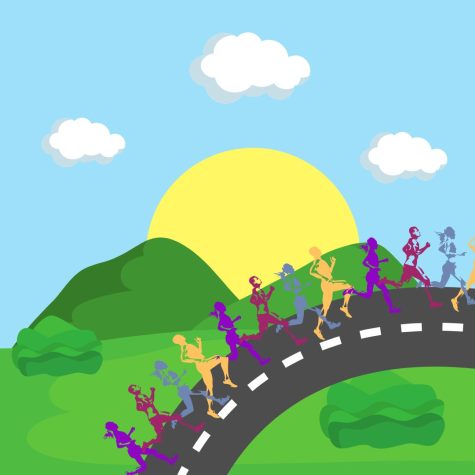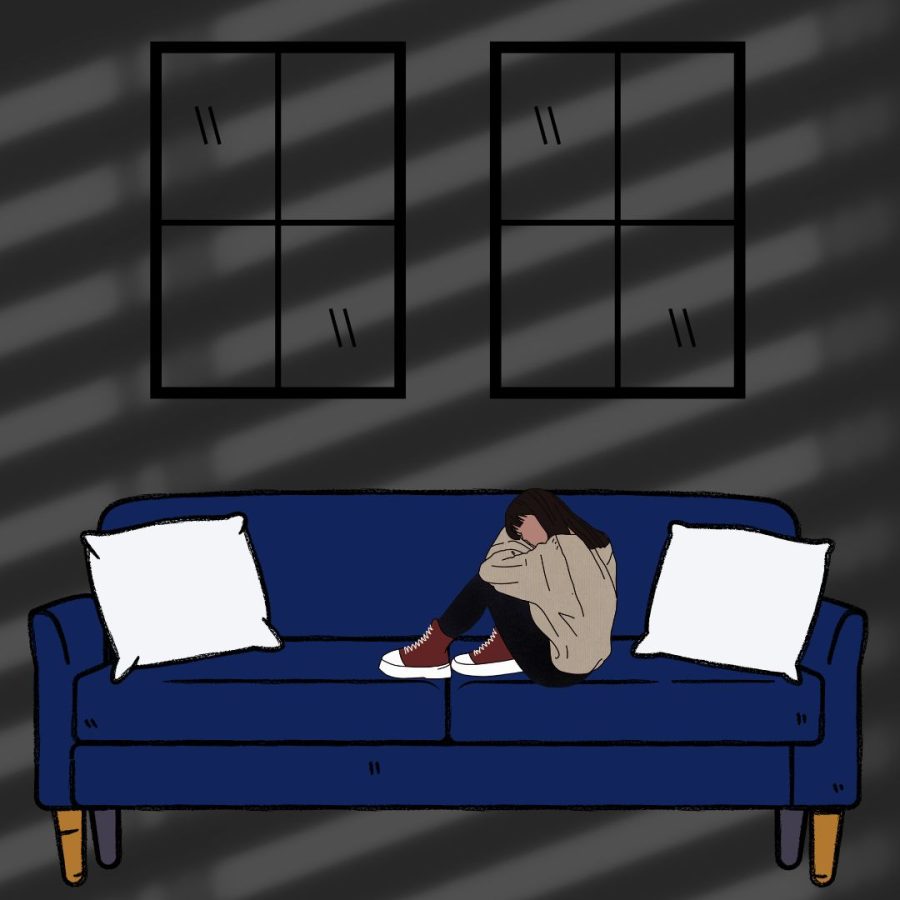Seasonal Depression affecting VHS students in the winter season
Seasonal depression can make people feel stuck in their house and their thoughts. Darkness makes people feel much more tired making them stay in bed and be less productive. Graphic by: Lourdes Almalab
January 24, 2023
Dialing in on why weather can affect our emotions
Seasonal depression is characterized as a mood disorder that reoccurs at the same time every year and it is a serious mental health issue that affects those going through it. The main cause of this is the decrease in sunlight, causing most people to experience it in the fall and winter seasons. It is also possible to have seasonal depression in the spring and summer but it is much less likely, according to Mayo Clinic.
Isabel Connell ‘25 said, “[My mental health issues are most prominent] when school is more stressful and in the winter time […] Overall winter makes me feel overwhelmed and stressed.”
Although mental health issues at school are common because of the overworking and stress that students endure, according to National Public Radio, VHS students have access to the Student Assistance Programs support groups to help them talk about their emotions. Seasonal depression is an issue that can be talked about in SAP.
Serotonin, a neurotransmitter that regulates mood, often called the “feel good” chemical, according to Cleveland Clinic, can be supplied by sunlight. Therefore our bodies need sunlight because the light supplies our bodies with vitamin D, which boosts serotonin production. Since it gets dark out at around 5 p.m, it can be challenging for students to be able to manage their time in sunlight.
Violet Hurguy ‘24 said, “Summer definitely makes me feel the happiest because you get to choose how you spend your time. I also think because it’s always sunny you can enjoy being outside doing active things that are more fun for me rather than in other seasons.”

“[Early darkness] makes me feel gloomy. When it’s light or sunnier outside I feel a need to be more proactive and spend my time wisely, but when it’s dark it makes it easier for me to just lay in bed instead of being productive,” Hurguy said.
Seasonal depression affects only around 5 percent of the U.S adult population and lasts for around 40 percent of the year, according to Psychiatry. Seasonal depression is also a mental health issue diagnosed as seasonal affective disorder.
Seasonal depression differs from normal depression because of its time breaks, and also because it is said to be more severe or debilitating. It is a hard period to get through for many but it goes away as time passes.








![Lindsay Guzik, new assistant principal said, "I am settling in [at VHS] pretty well. I know a lot of the students, so that makes it a little bit easier coming from Cabrillo, and it's been nice to see them all grown up." Photo by: Abraham Kassa](https://thecougarpress.org/wp-content/uploads/2025/09/IMG_9728-300x200.jpg)
